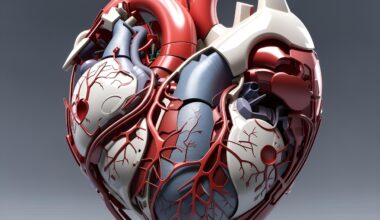Community Engagement and Its Effect on Mind-Body Integration
The mind-body connection is a profound concept that highlights the importance of social interactions and community support in health and wellness. When individuals engage in activities that promote social ties, they reinforce their mental well-being and enhance their physical health. Community engagement fosters a sense of belonging and purpose, which positively influences mental state. People who actively participate in their communities often experience reduced stress levels, improved mood, and greater overall health. Studies demonstrate that social support connects to lower rates of anxiety and depression, helping individuals to cope with life’s challenges. Furthermore, engaging in community activities, such as charity work or volunteering, can promote kindness and empathy, strengthening relationships. All these factors contribute significantly to individuals’ mind-body integration, underscoring the idea that social support is essential for optimal health. Creating an atmosphere where community members thrive together ensures not only social interaction but also a nurturing environment. In summary, the connections made through community support can lead to substantial improvements in both mental and physical well-being.
As we explore the landscape of community support, it becomes evident how integral it is for fostering resilience among individuals facing adversity. Resilience is a pivotal factor in how effectively we manage stress and cope with life changes. When communities offer a network of support, they empower individuals to overcome difficulties, reinforcing the mind-body connection. Support may manifest in various forms, including emotional backing, informational resources, and tangible assistance during crises. These collective efforts nurture an environment where individuals feel less isolated, thus diminishing feelings of anxiety and depression. The role of community engagement is particularly prominent in marginalized groups, where social networks may be limited. Establishing meaningful relationships within these contexts serves to bridge gaps and promote better health outcomes. Moreover, community activities, such as fitness programs or group therapy sessions, exemplify how collaboration fosters personal growth and unity. Such initiatives not only enhance the physical bodies of participants but also cultivate mental fortitude and resilience. When individuals feel supported, they are more likely to take proactive steps toward better health, demonstrating the incredible impact of community on the mind-body relationship.
The Role of Shared Experiences
Shared experiences significantly contribute to the depth of community engagement and strengthen the mind-body connection. When community members come together for activities, such as workshops, fitness classes, or social events, they create a shared narrative that reinforces their bonds. These collective experiences provide platforms for individuals to express emotions, share struggles, and celebrate successes together. This mutual understanding fosters an environment rich in camaraderie, enhancing feelings of belonging and attachment. Moreover, participating in communal activities can lead to improvements in physical health, as these settings encourage individuals to engage in healthier behaviors collectively. Whether through walking groups, yoga sessions, or team sports, these initiatives promote physical activity while nurturing social interactions. Additionally, shared experiences can instill a sense of purpose among community members. This sense of purpose often translates to improved emotional well-being, as individuals feel their contributions matter. Furthermore, the validation and support received within these shared experiences can reduce anxieties and encourage personal growth. Ultimately, fostering such communal ties is vital for holistic health, bridging the gap between mind and body.
Alongside shared experiences, mentorship and guidance within communities play a crucial role in enhancing the mind-body integration process. Effective mentorship facilitates the transmission of knowledge, skills, and emotional support among community members. Mentors often guide mentees through various challenges, reinforcing the value of connection. The process of mentorship also cultivates accountability, which can motivate individuals to pursue their health goals actively. Communities that prioritize mentoring create spaces for growth and development, encouraging individuals to share their knowledge and experiences. This exchange strengthens relationships and promotes collaboration, enhancing both mental and physical health outcomes. Mentored individuals are often more resilient and equipped to handle stress, as they have supportive figures to lean upon. Furthermore, establishing mentorship programs can foster inclusivity, as they invite diverse voices and perspectives. This diverse engagement ensures that all community members feel valued and heard, bridging gaps and uniting people across varying backgrounds. As these ties strengthen, the interconnectedness of mind and body becomes even more evident, illustrating the profound impact of a supportive community on individual health journeys.
Physical Activities and Mental Benefits
Engaging in physical activities facilitated by community support enhances not only physical fitness but also mental well-being. Exercise is proven to alleviate symptoms of stress, anxiety, and depression, amplifying the effects of social interaction on mental health. Communities that promote group activities, such as team sports or exercise classes, foster a positive and encouraging atmosphere. The social dynamics inherent in these activities build camaraderie and motivation among participants. Research suggests that the sense of achievement experienced within community-oriented fitness programs contributes to heightened self-esteem among individuals. Exercising in a group can also reduce feelings of loneliness and isolation, further enhancing psychological health. Moreover, shared physical pursuits cultivate a foundation for developing friendships, which can bolster emotional well-being. The joy of achieving common fitness goals fosters bonding and instills a collective sense of purpose. Incorporating community-based physical activities into one’s routine serves to connect both mind and body effectively. The powerful connection formed through these experiences underscores the significant benefits of addressing mental and physical health jointly, allowing individuals to thrive in supportive environments.
The impact of community support extends into the realm of mental health advocacy, emphasizing the importance of awareness and understanding. When community members engage in discussions and education on mental health, they help combat stigma associated with psychological struggles. Awareness initiatives create open channels for people to share their experiences, fostering a culture of acceptance and vulnerability. This openness can encourage individuals to seek help and guidance without fear of judgment, reinforcing the mind-body connection. Communities equipped with knowledge about mental health resources can effectively direct individuals toward appropriate interventions. Furthermore, advocating for mental wellness creates a ripple effect, encouraging more community members to prioritize their mental health. Educational workshops, support groups, and awareness campaigns can all play a significant role in enhancing understanding. Organizations can collaborate to create safer environments, empowering those struggling with mental health issues. The more individuals feel comfortable discussing mental health within their community, the more resilience and solidarity develop. As members learn and grow together, they contribute to a holistic approach to well-being, illustrating how community-driven initiatives can positively influence the mind-body relationship.
Conclusion: A Call to Action
In conclusion, enhancing community engagement can lead to substantial improvements in the mind-body connection, ultimately paving the way for holistic well-being. The interplay between social support, shared experiences, mentorship, and advocacy cultivates environments that nurture both mental and physical health. It is imperative for individuals, organizations, and policymakers to recognize the value of fostering community ties. Initiating programs that encourage active participation, such as fitness groups and educational workshops, can amplify the positive effects of community engagement. Furthermore, the creation of safe spaces for open conversations regarding mental health can empower individuals to prioritize their well-being. By focusing on building supportive networks, we can eradicate stigma and promote understanding within our communities. Every effort to enhance community ties leads to profound transformations in individual lives, reinforcing the essence of connection. Individuals are empowered to pursue healthier lifestyles and emotional growth when they feel supported. Therefore, let us collectively commit to nurturing community connections, ensuring that every voice is heard, valued, and uplifted. Together, we can strengthen the intricate bond between mind and body, paving the way for a healthier society.


